Technology-Based Instructional Strategies Show Promise in Improving Self-Regulated Learning Skills at Broad-Access Postsecondary Institutions
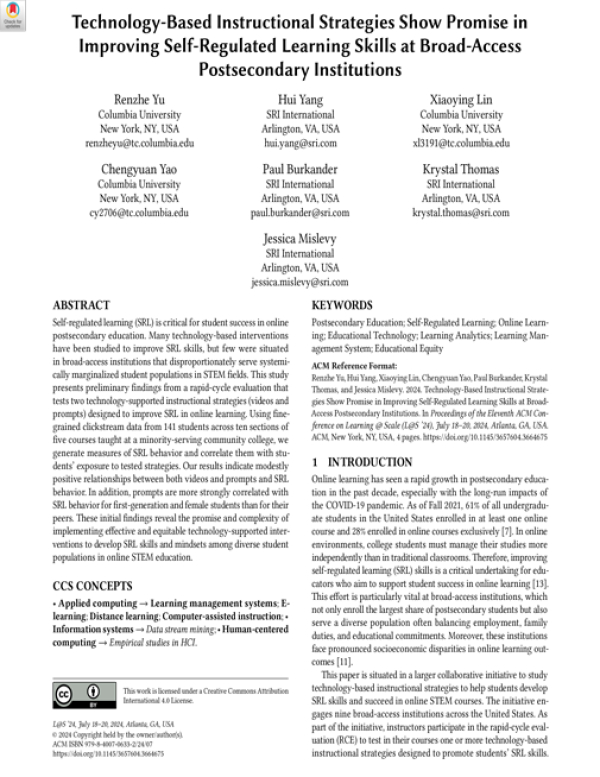
Using clickstream data from five online courses, this article presents preliminary findings from a rapid-cycle evaluation testing the use of videos and prompts as technology-supported instructional strategies designed to improve self-regulated learning in online classrooms.
Choice, Information Inequity, and the Production, Legitimation, and Reduction of Educational Inequality
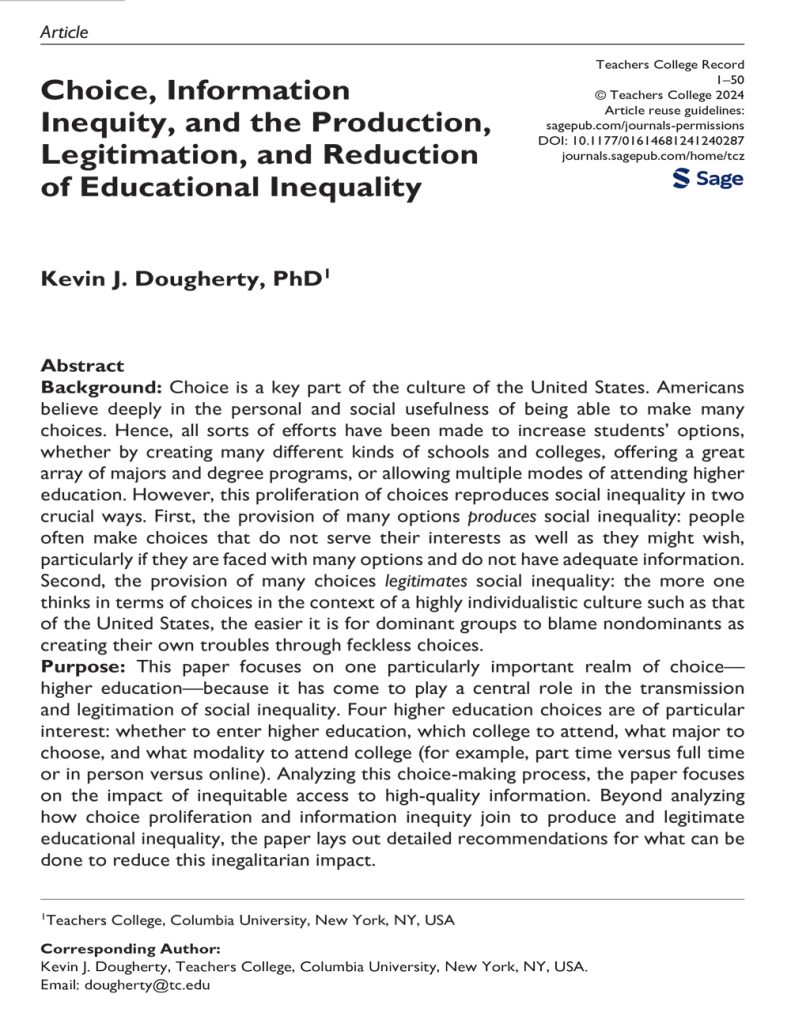
This journal article analyzes how choice proliferation and information inequity in higher education join to produce and legitimate educational inequality, and it offers detailed recommendations on how to reduce this inegalitarian impact.
Challenges and Opportunity: An Examination of Barriers to Postsecondary Academic Success
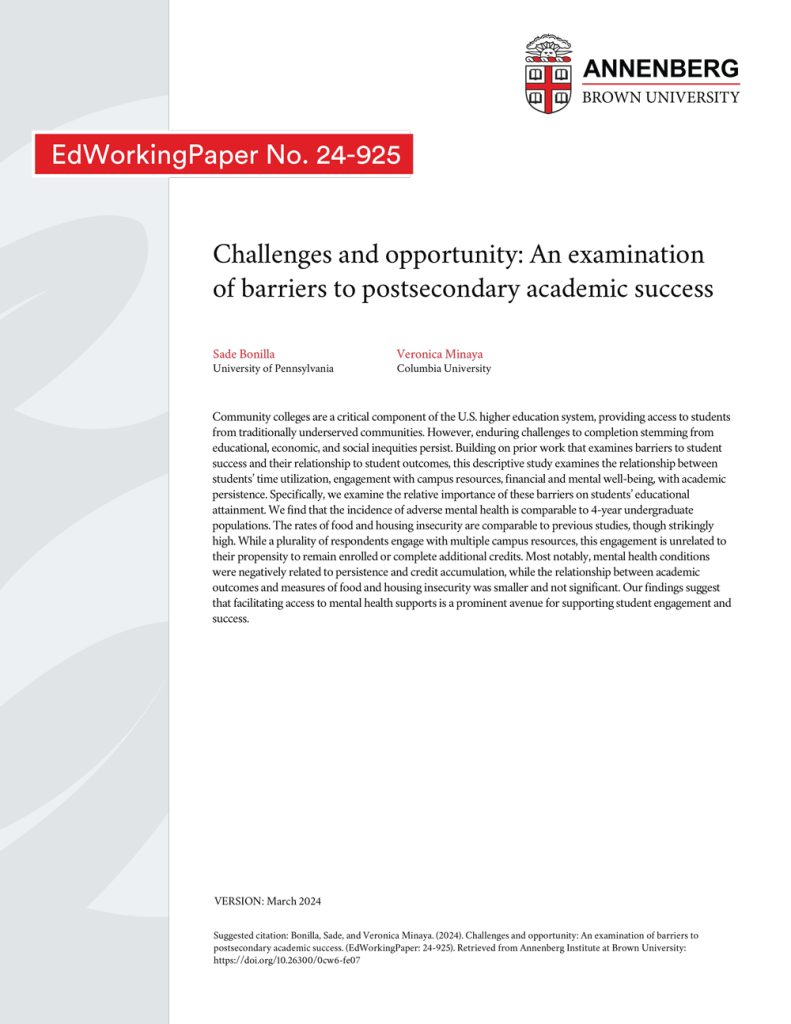
This Annenberg Institute working paper examines the relationship between community college students’ academic persistence and their time utilization, engagement with campus resources, and financial and mental well-being, as well as the relative importance of these factors for students’ educational attainment.
Heterogeneity in Labor Market Returns to Master’s Degrees: Evidence from Ohio
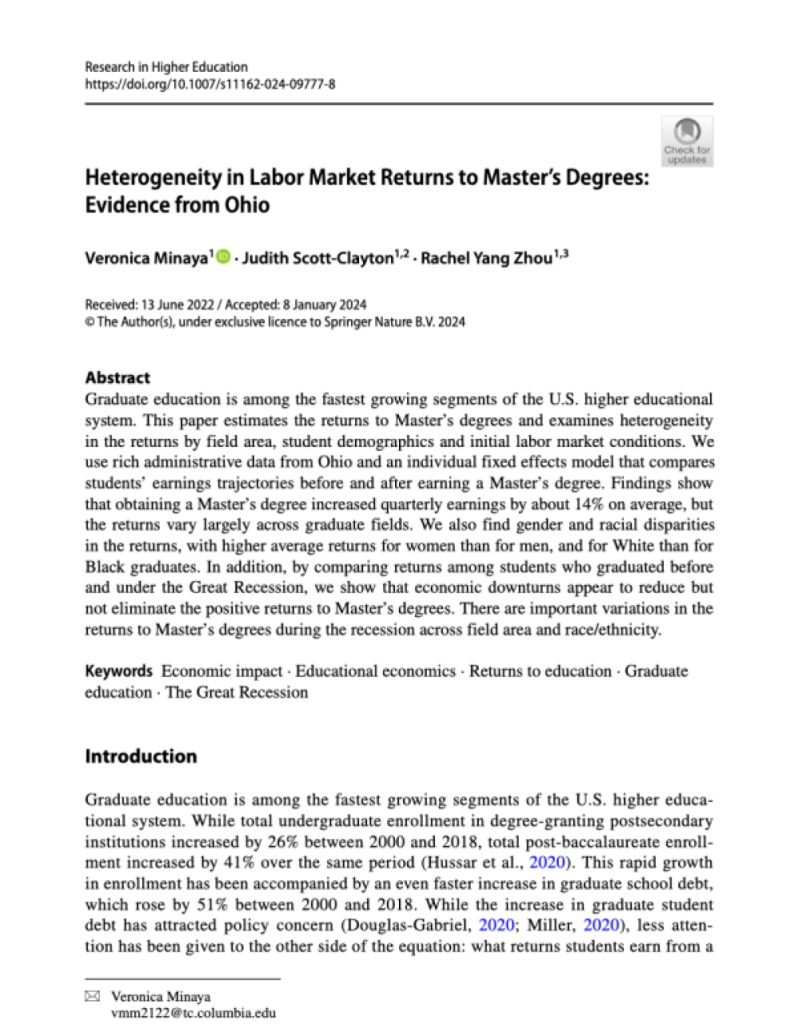
This Annenberg Institute working paper provides up-to-date causal evidence on labor market returns to master’s degrees and examines heterogeneity in the returns by field area, student demographics, and initial labor market conditions.
Toward a Practical Set of STEM Transfer Program Momentum Metrics
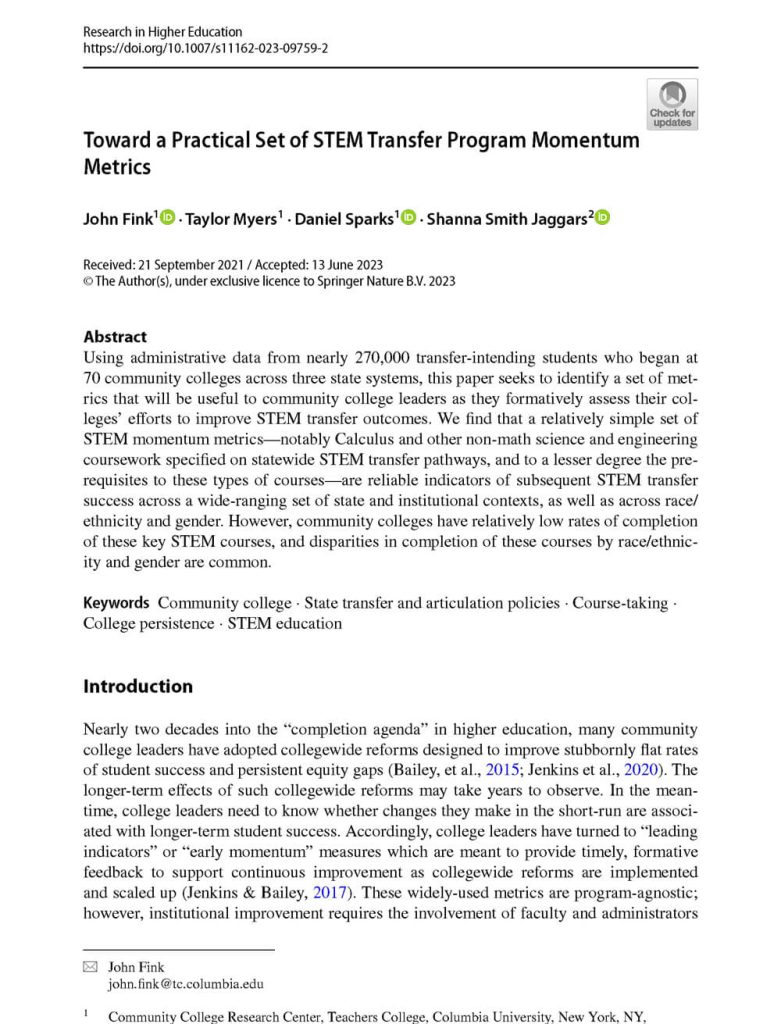
Drawing on administrative records from transfer-intending community college starters across three states, this paper develops a set of early STEM momentum metrics that are useful indicators of subsequent STEM transfer and bachelor’s degree attainment.
